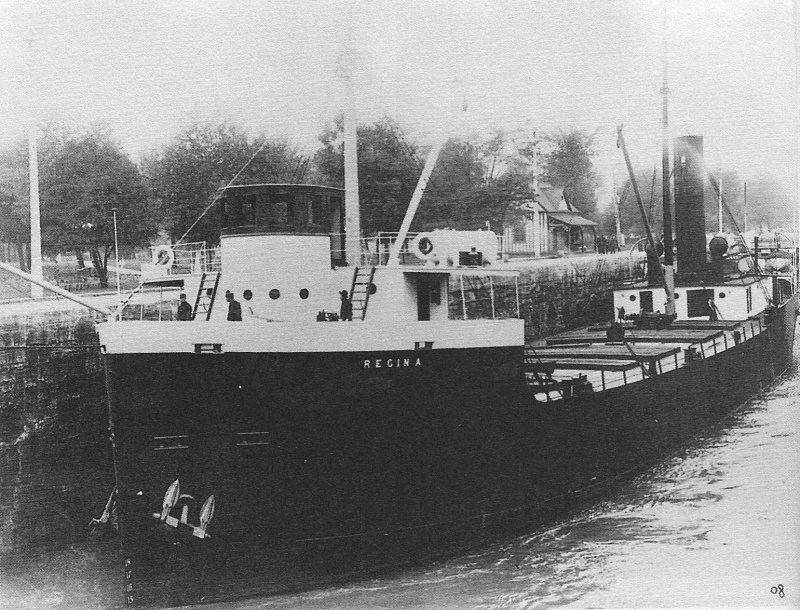Although wireless communication had been around for some years, only some lake-going ships made use of it in 1913. Those who had the technology were informed of the coming change in weather that week, and took appropriate precautions. Of the 12 ships that were eventually lost, none had wireless capabilities.
Captain McConkey of the Regina would not have been expecting the sudden change in weather that occurred about the 7th of November. An atmospheric depression had formed in the Great Lakes region, which drew to it three other weather systems that created a sort of perfect storm. Arctic air arrived from the north, while a cold low-pressure system came from the west, and a warm windstorm traveled up from the Gulf of Mexico.
Seemingly out of nowhere, the temperature dropped and things on deck began to ice up. Snow swirled around in 60 mile an hour winds, while the waves rose to 35 feet. Sailing with a full cargo, including a load of steel pipes strapped to the upper deck, Regina was top heavy. She stood little chance.
Unable to go any further, nor turn back, Captain McConkey made the decision to do the only thing they could – roll out the anchor and stay put, and hope to ride out the storm.
In the aftermath of the cataclysm, bodies of the crew and passengers of the doomed lakers began to wash up on Lake Huron beaches, including those who were wearing Regina life belts. Captain McConkey was not among them. It would be over a year before his body would be found, to perhaps give some peace to his grieving family in Barrie.
With his remains, Captain McConkey’s watch and diary were found. His wife carefully dried out the small book, which offered a glimpse into Edward’s thoughts. The pages were filled with nautical entries, thoughts about his family, and yet no hint of any approaching danger. The diary is now held in the Huron County Museum in Goderich.
Also lost on the Regina was a young sailor named Bert Dusome, nephew to Captain McConkey’s wife, and Wesley Adams of Hawestone. The tragedy hundreds of miles away was felt keenly in this area.
It was not until 1987 when three divers accidentally found the Regina while looking for another ship, that the full story was told. She was found off Port Sanilac, Mich. in 80 feet of water, lying upside down, with a huge gash across one side. The anchor chain was fully extended, which supported the theory that the crew had been hoping to weather the storm in place. The engine was in the full stop position, and the ship’s whistle had been left fully open, as a sort of mayday signal, evidence that the captain had been the last man on board. All of the lifeboats were gone.
In 1914, Edward finally made it back home to Barrie and is buried in Barrie Union Cemetery.
“The good ship and crew was a bone to be chewed when the gales of November came early.”
Each week, the Barrie Historical Archive provides BarrieToday readers with a glimpse of the city’s past. This unique column features photos and stories from years gone by and is sure to appeal to the historian in each of us.



